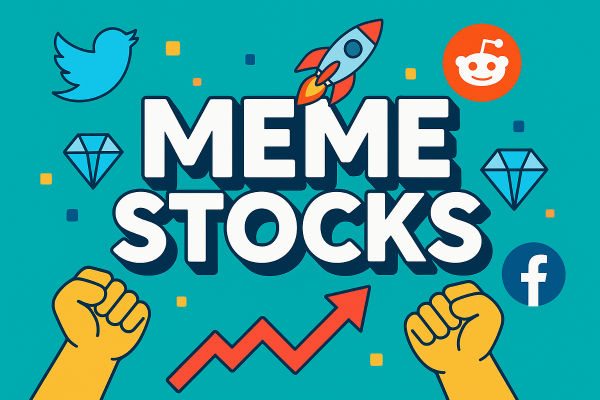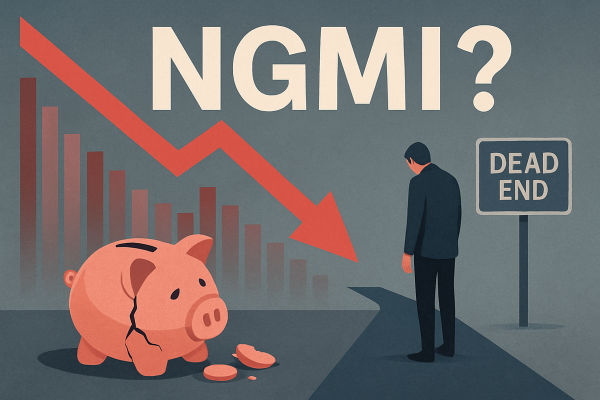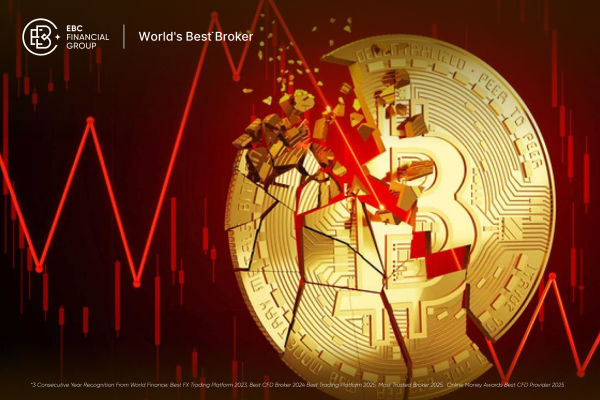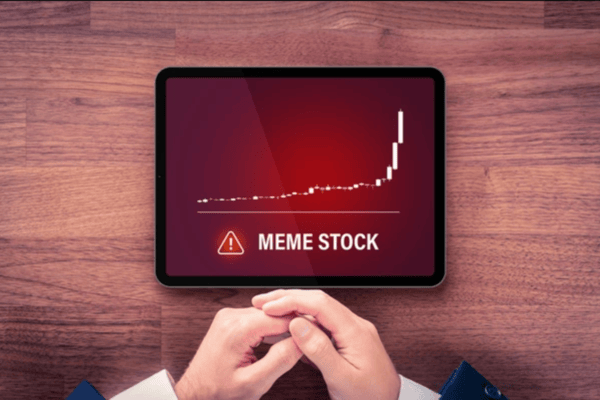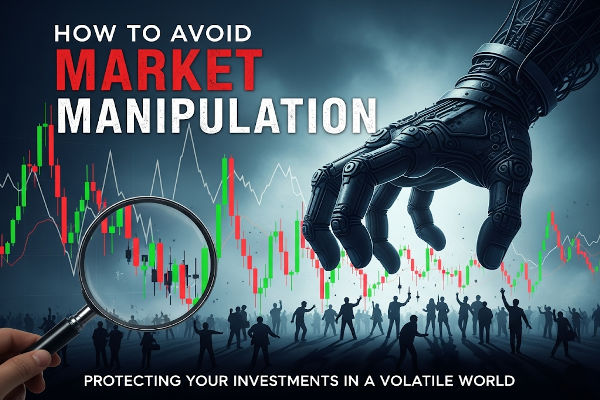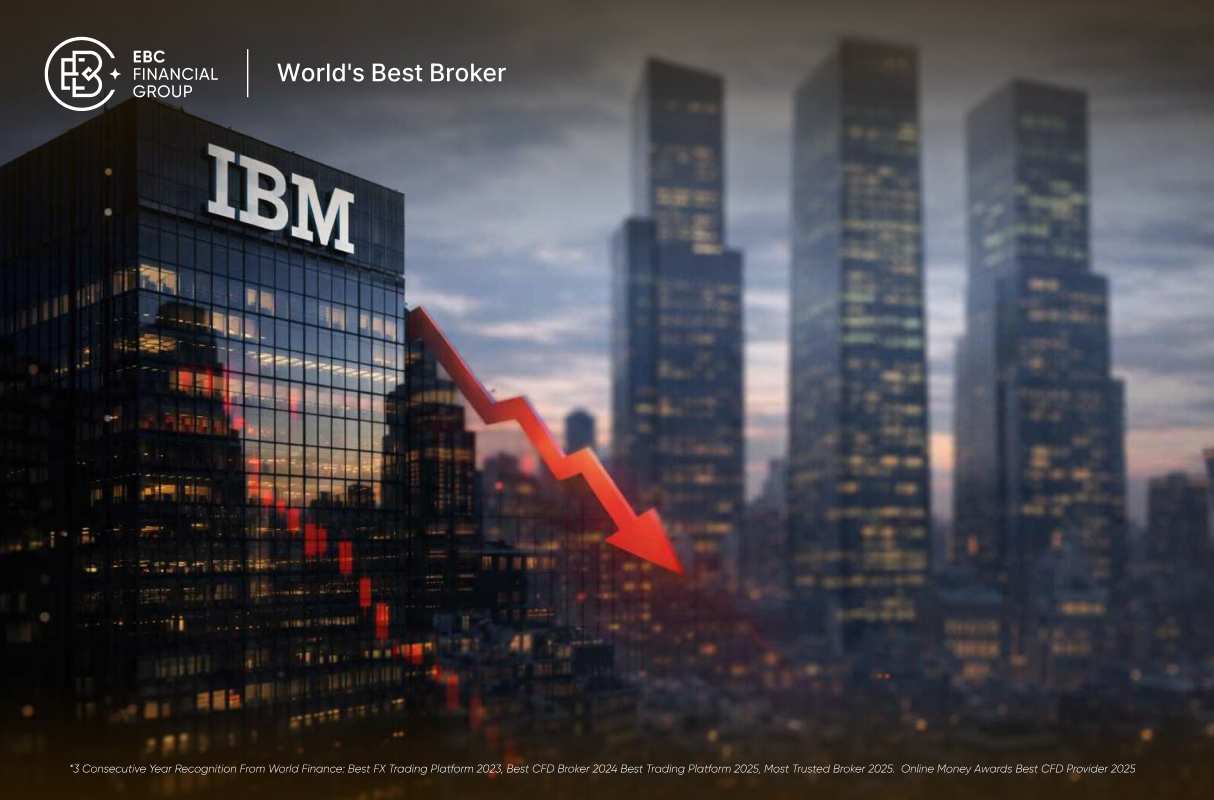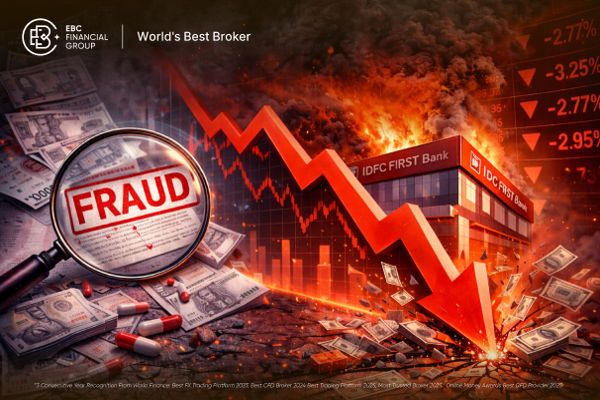Meme stocks, the highly volatile equities driven by online community sentiment rather than traditional fundamentals, are proving they are far from a one-time anomaly of 2021. This trend is currently thriving, evolving from a quirky retail rebellion into a sophisticated, rapid-fire market force.
At the time of this update, stocks like Opendoor, Kohl's, GoPro, Krispy Kreme, and even Wendy's have recently experienced dramatic surges, proving that the meme-stock phenomenon has matured rather than disappeared.
This article breaks down what meme stocks are, why they continue to thrive, the technical tools driving today's rallies, and the profound risks traders should watch out for.
What Are Meme Stocks?
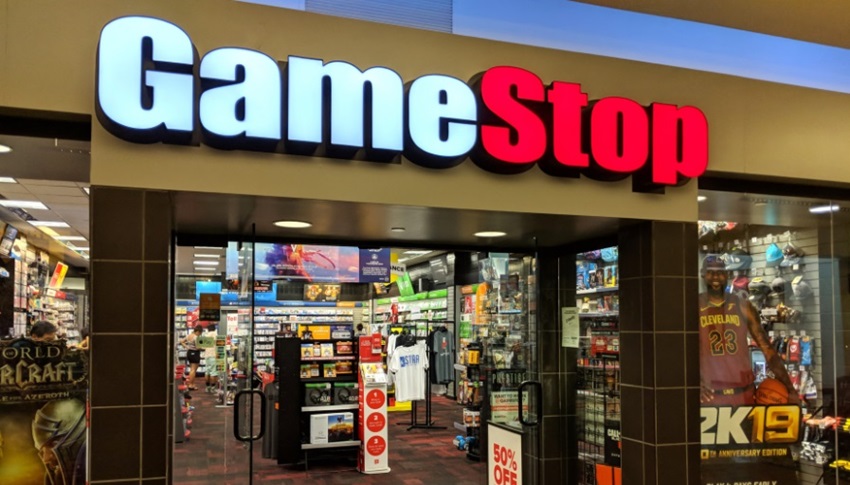
Meme stocks are equities that rise (or fall) sharply due to online hype, viral trends, or social media campaigns, rather than changes in business fundamentals.
The term "meme" refers to the viral, community-driven nature of their price action, often rooted in inside jokes, shared goals, or anti-establishment narratives found on platforms like Reddit, X (formerly Twitter), and Discord.
Key features include:
Retail-driven trading via Reddit, X (formerly Twitter), and Discord.
Short squeezes, where retail traders target highly shorted stocks to force covering.
Community narratives such as "diamond hands" or "MOASS" (Mother of All Short Squeezes).
Although they began with GameStop and AMC in 2021, current meme stocks now feature firms from the real estate, retail, and consumer goods sectors.
Meme Stocks in 2025: The Trend Returns
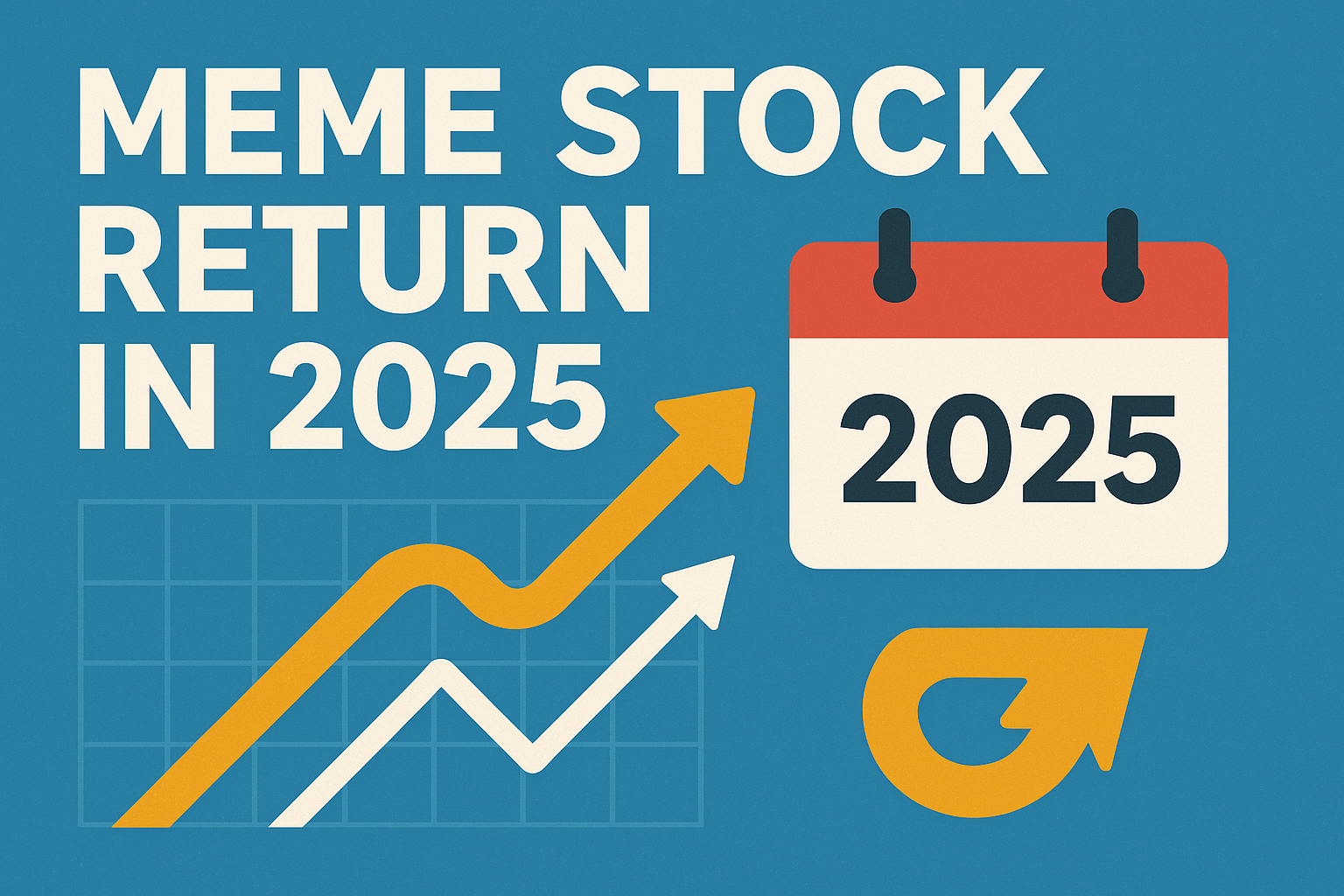
Fast forward to 2025, and meme stocks are back. Recent examples include:
Opendoor (OPEN): Surged after renewed Reddit interest, with reports highlighting its former CEO realizing large personal gains during the rally, underscoring the liquidity generated by the enthusiasm.
Kohl's (KSS) and GoPro (GPRO): Retail traders piled into these names despite mixed fundamentals. For example, Kohl's was reported to have nearly 50% of its outstanding shares sold short just before the major surge, making it an ideal target for a short squeeze. GoPro finished a week in Q3 2025 up over 66% due to the abrupt volume surge.
Krispy Kreme (DNUT) and Wendy's: These food-service stocks benefited from social media hype, showing meme momentum extends beyond the traditionally targeted tech and retail sectors.
These examples highlight that meme stocks are no longer limited to struggling movie theatres or gaming retailers as they now extend to any stock with social resonance.
Why Meme Stocks Are Back in 2025?
Meme trading never really went away; it evolved. Several factors explain the 2025 resurgence:
1. AI-Powered Sentiment Tracking
Platforms now use AI to scrape Reddit threads, TikTok videos, and Twitter posts, turning viral mentions into trading signals.
2. Short-Interest Transparency
Retail investors closely monitor live short-interest data, allowing them to target vulnerable stocks more effectively.
3. Easy Access to Options & Leverage
The rise of zero-day-to-expiry (0DTE) options has made speculative meme plays even riskier, amplifying price swings within a single trading session. (Barrons)
4. Cultural Momentum
Meme trading has become integral to the identity of retail investors, as social media memes, livestreams, and influencer calls to action still fuel FOMO buying.
Case Study: Opendoor's Meme Rally

Opendoor Technologies (OPEN), a real estate platform, became the poster child for the 2025 resurgence. Its stock had been languishing below $1.00 per share earlier in the year, even considering a reverse stock split in June to avoid delisting.
The rally began in July 2025, fueled by high short interest (around 21% of the float) and public backing from influential investors who dismissed the "meme stock" label, opting instead for "cult stock."
The collective retail buying drove the share price up by over 500% in a single month, peaking at over $3.21 on July 21st.
This extraordinary retail enthusiasm created significant corporate flexibility:
Gaining Liquidity: The company utilized the inflated stock price to issue new equity, raising capital at a much higher valuation than its fundamentals suggested, thereby strengthening its balance sheet.
Executive Gains and Volatility: While the company gained liquidity, the former CEO, Carrie Wheeler, stepped down in mid-August. Simultaneously, the rally allowed insiders to realize large personal gains through stock sales, underscoring the dynamic where retail investors often provide the necessary volume and price support for early buyers and institutional players to exit profitably.
The stock subsequently experienced a sharp correction of over 40% after Q2 earnings, but later rallied again following the appointment of new CEO Kaz Nejatian and his push to rebrand Opendoor as an "AI company."
This case study perfectly demonstrates both sides of the meme coin: the immediate, massive liquidity injection for the company versus the extreme risk individual investors take buying shares near unsustainable peaks.
Should You Start Investing in Meme Stocks Now?
Trading meme stocks isn't inherently bad; it just requires awareness. For some, it's entertainment and speculation. For others, it's about testing collective power against Wall Street.
Best practices include:
Never invest more than you can afford to lose.
Avoid excessive leverage.
Regard meme stocks as speculative investments rather than foundational ones.
Track community sentiment and short-interest data carefully.
Risks and Red Flags of Investing in Meme Stocks
As mentioned above, meme stocks are exciting but risky. Investors should be cautious of:
Pump-and-dump dynamics: Hype can collapse overnight, leaving late entrants with heavy losses.
High leverage: Traders often use margin or options, magnifying risks.
Regulatory attention: SEC monitoring has increased since 2021, raising potential compliance hurdles.
Market froth: Analysts warn recent rallies show signs of speculation divorced from fundamentals.
Future Insights: The Evolution of Social Trading
The 2025 meme stock resurgence is likely not the last. It signals a fundamental and permanent shift in market structure, fueled by technology and accessibility. Looking ahead, the phenomenon is expected to evolve in several key ways:
Gamification and Tokenization: Financial institutions and exchanges may attempt to formalize the meme appeal by gamifying trading experiences or exploring tokenized equities where specific shares are represented as a digital asset, potentially integrating anti-short mechanisms or new types of shareholder engagement (as demonstrated by companies like Datavault AI in Q4 2025).
Global Retail Participation: The trend is becoming increasingly international. Global retail participation in U.S. equities is rising, particularly in regions like South Korea and India, where a high-risk appetite fuels around-the-clock trading. This internationalization adds new layers of liquidity and volatility to the market.
The future of meme stocks is inextricably linked to the future of social trading, where collective, decentralized decision-making permanently influences price discovery.
Frequently Asked Questions
1. What Makes a Stock a "Meme Stock"?
A stock that rises sharply due to viral internet hype and retail buying, not fundamentals.
2. What's Different About Meme Stocks in 2025 vs 2021?
In 2025, AI sentiment trackers, faster retail platforms, and 0DTE options make rallies more volatile and short-lived.
3. Is Trading Meme Stocks Safe?
They're highly speculative. Safe only if treated as high-risk trades, not long-term investments.
4. How Can I Guard Against Meme-Stock Crashes?
Use stop-losses, avoid chasing parabolic moves, and diversify beyond speculative positions.
Conclusion
In conclusion, meme stocks are not merely a 2021 trend. Today, they symbolise a continuous trend that is transforming how retail investors interact with the markets. In 2025, driven by AI sentiment analysis, short-term options, and social media excitement, meme stocks are a captivating yet unpredictable phenomenon.
For traders, they offer opportunity and risk in equal measure. For markets, they highlight the growing influence of digital communities. Until regulation catches up, meme stocks will continue to blur the line between entertainment, speculation, and investing.
Disclaimer: This material is for general information purposes only and is not intended as (and should not be considered to be) financial, investment or other advice on which reliance should be placed. No opinion given in the material constitutes a recommendation by EBC or the author that any particular investment, security, transaction or investment strategy is suitable for any specific person.
